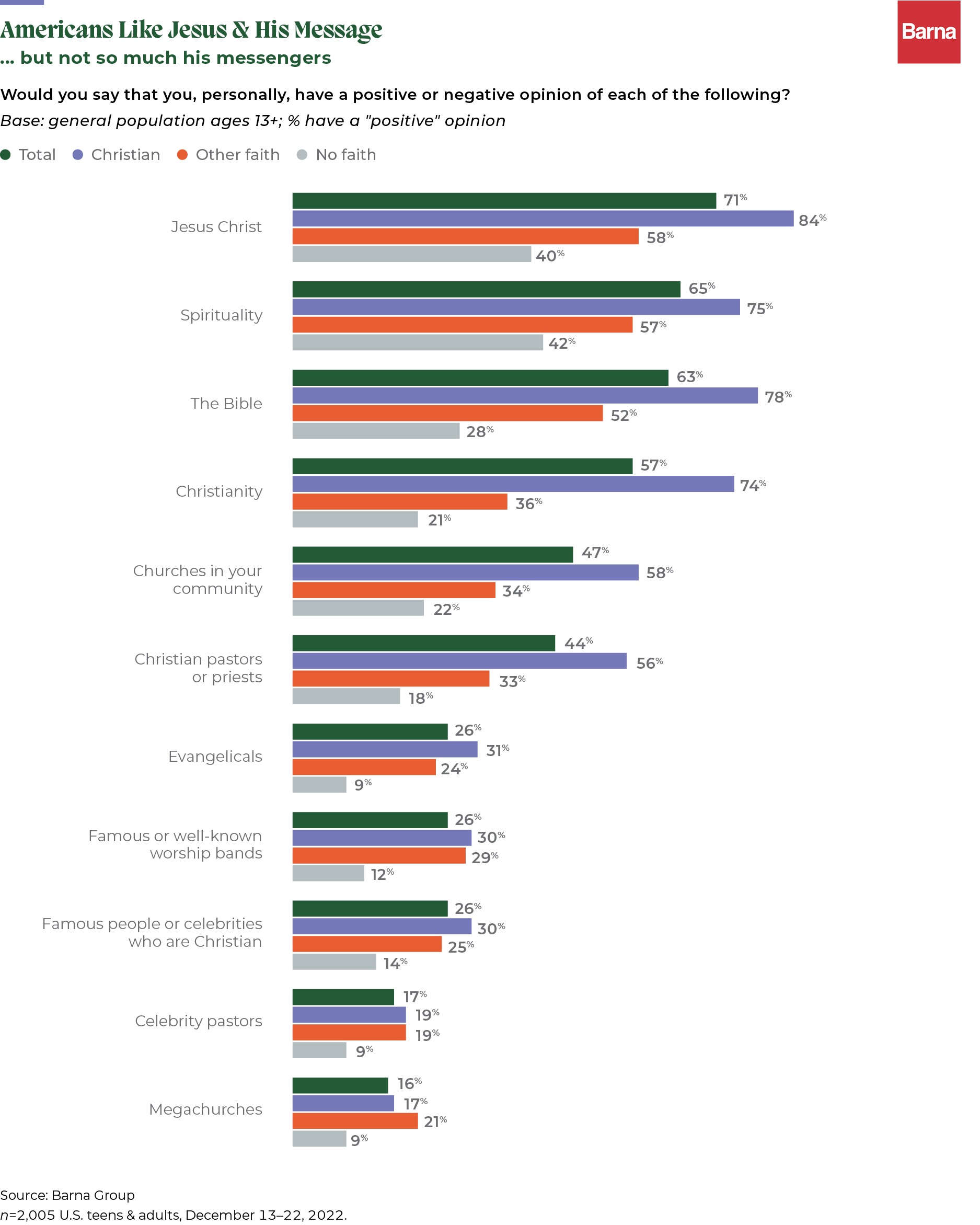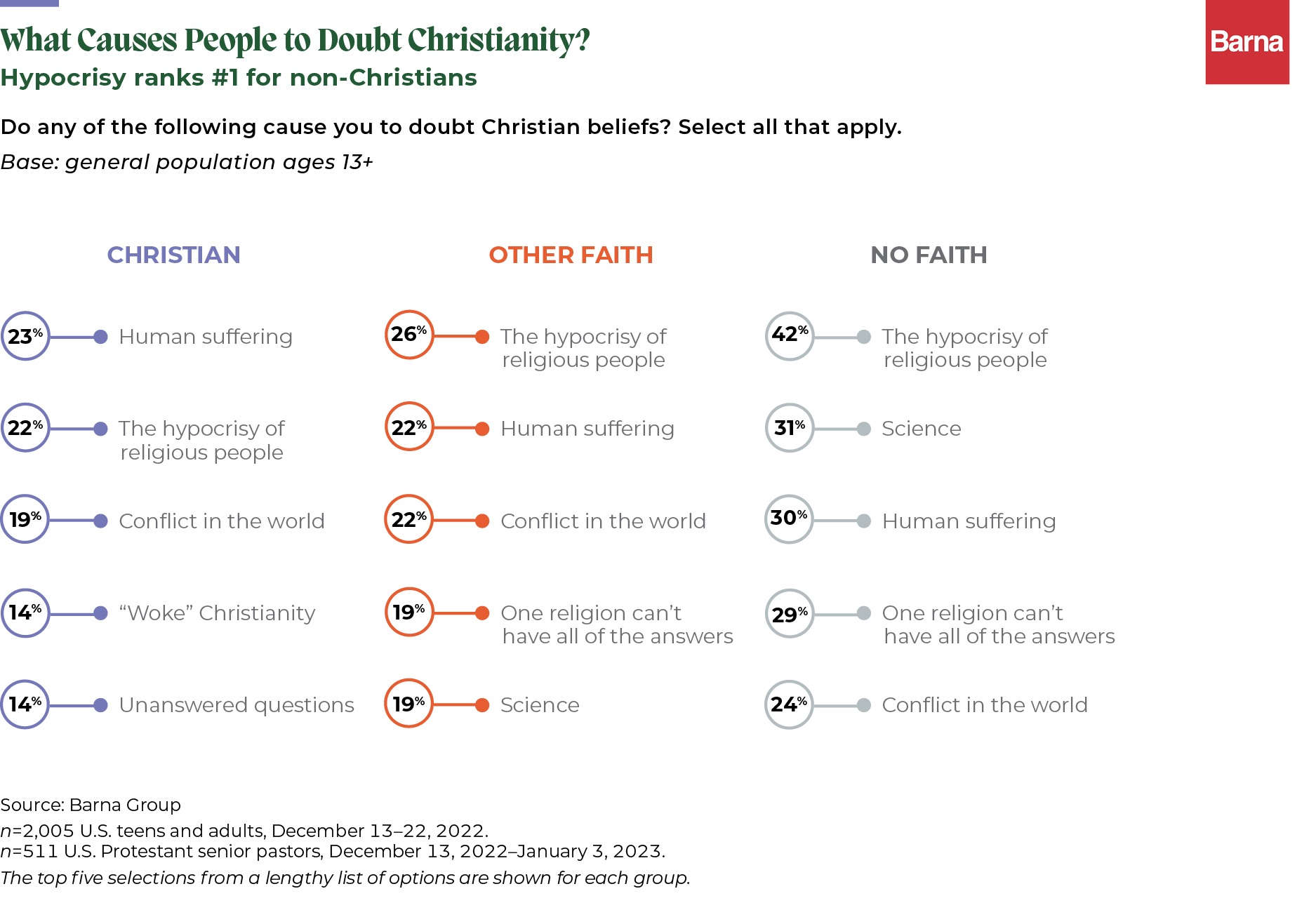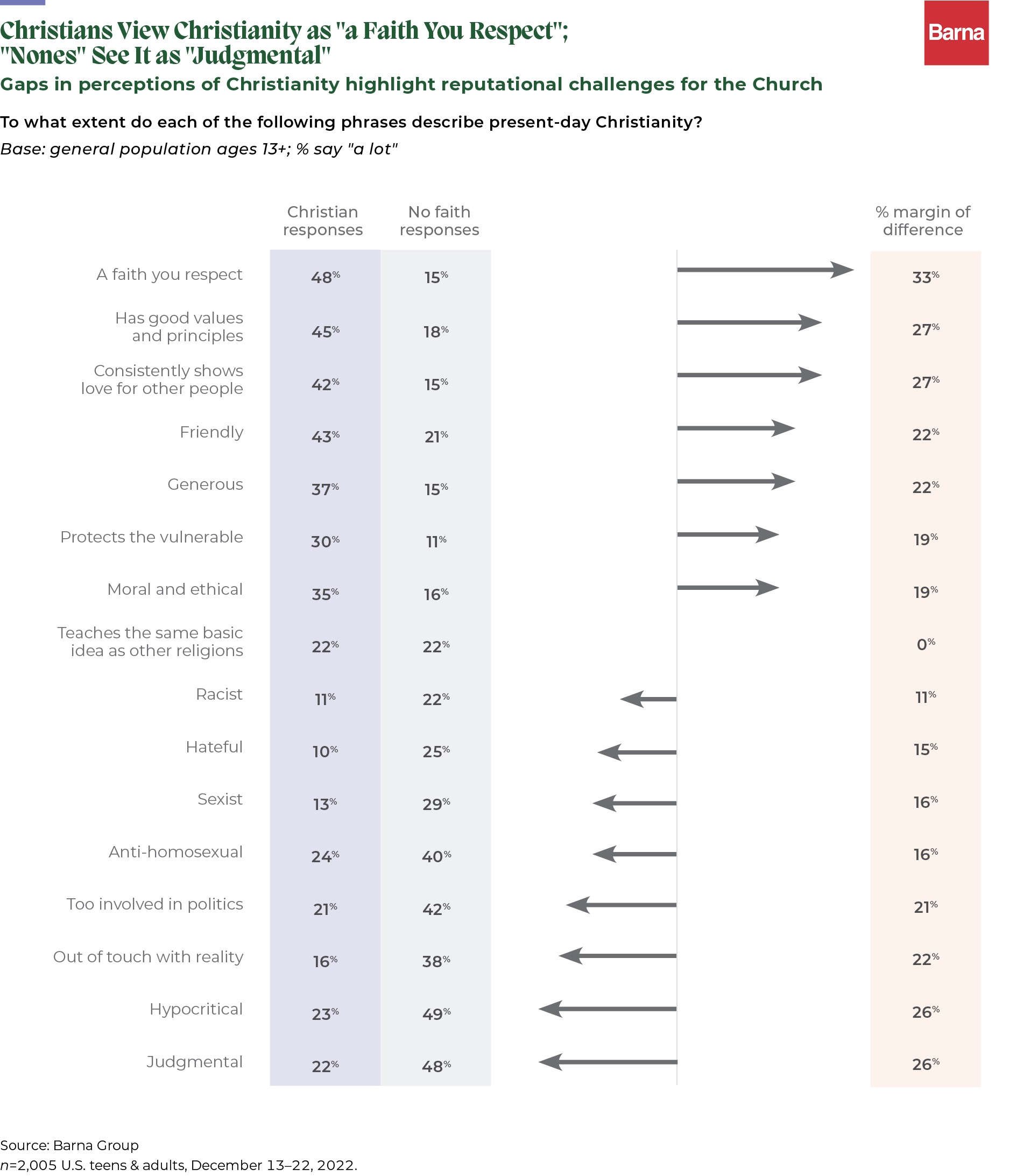Americans Do Not Like Megachurches or Celebrity Pastors
There appears to be a large divide between how people view Jesus compared to how they view His followers.
Jesus is viewed quite favorably by most people, not just by Christians but also members of other faiths. When it comes to Christians however, especially in examples such as megachurches and celebrity pastors, the opinions sour rapidly, even among the Christian community.
In a national survey conducted by the Barna Group, the third part of their “Spiritually Open” series, 2,005 U.S. teens and adults were asked from December 13-22, 2022, if they had positive views on a variety of aspects of Christianity.
Jesus (71%), Spirituality (65%), the Bible (63%) and Christianity in general (57%) scored the highest in how Americans regard them.

There is a noticeable drop however once people are asked about topics such as the churches in their community (47%) and Christian pastors or priests (44%).
As the survey became more specific, it was clear that there is a disconnect between Jesus and what He preached, and how His modern-day followers are received by the public.
The list of those who are negatively viewed by both the Christian and non-Christian groups take five out of the 11 categories including: Evangelicals (25%); famous or well-known worship bands (26%); famous people or celebrities who are Christian (26%); celebrity pastors (17%); and megachurches (16%).
Working to find out why there is such a negative view, especially of people with “no faith” and of “other faith” in the survey, Barna discovered that by far the largest factor in their viewpoints was, “the hypocrisy of religious people” (66%).

As reported by Barna, “This isn’t to say that, at a surface level, present-day Christianity doesn’t have a welcome presence in the U.S. It is typically seen as respected, principled, loving, friendly, generous and so on. More telling than these general descriptions, however, are the glaring disparities between how Christians and those of no faith regard Christianity. These gaps represent the hurdles the Church needs to overcome, especially if sharing faith or welcoming people into churches is the goal.”
Looking at the pollical, social and economic landscape of America today, tribalism has taken over much of the culture. The adage of “if you’re not for me you’re against me” has taken root in many hearts across the country, including the church.
Much of the negativity from other faiths or people of no faiths derives from the fact that modern culture conflicts with many of the teachings within the Word of God. This has led the church to be viewed as anti-homosexual (40%), too involved in politics (42%), out of touch with reality (38%), hypocritical (49%) and judgmental (48%) by those of “no faith.”

According to David Kinnaman, CEO of Barna Group, “The work of Christians is to embody Jesus—full of truth and grace—and reflect His image in all they say and do,” he said. “The data shows they too often fall short.”
These feelings and views of those not belonging to the Christian faith show the words of Jesus in Matthew 9:13 are not being kept where He says: “But go and learn what this means, ‘I desire mercy, and not sacrifice.’ For I have not come to call the righteous, but sinners, to repentance.”
There is a spiritual thirst in America today, and the living water that will quench it only comes from Jesus Christ, and according to the Barna Group:
“Our data on the rising spiritual openness in America reveals a tremendous opportunity for faith leaders. The challenge facing the Church is whether they are ready and able to meet the spiritually open—where they are, as they are.” {eoa}
James Lasher is Staff Writer for Charisma Media.




























































